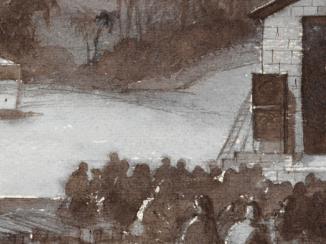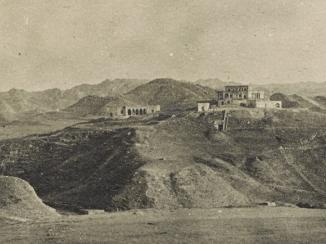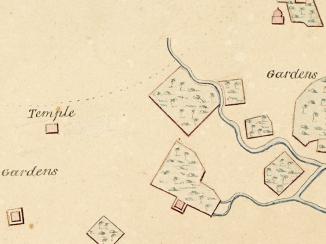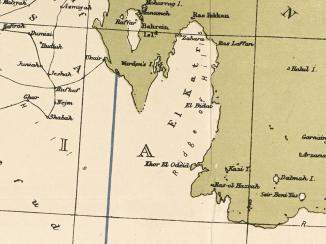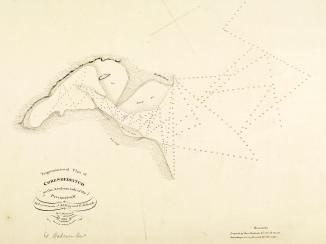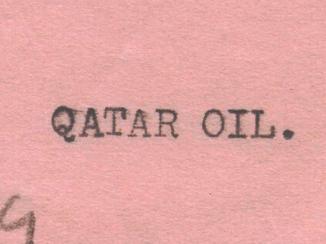Overview
The first license for oil exploration was granted to the Anglo-Persian Oil Company (A.P.O.C.) by the ruler of Qatar, Shaikh ‘Abdullāh bin Jāsim Āl Thānī, in 1932. But the extraction process was not put in place until several years after the Second World War.
Exploratory Leases: The Hunt for Oil in the Gulf
Qatar’s exploratory wells were drilled relatively late, especially considering that oil exploration had already begun in the 1920s, earlier in some cases, in most other countries in the Middle East. For example, by that time, explorations had already concluded in Bahrain with the discovery of oil in 1931.
Despite the discovery of oil in Iran at the beginning of the twentieth century, it was only in the 1920s that Britain’s interest in oil concessions deepened. In 1922, Major Frank Holmes, a British-New Zealander known as ‘the Father of Oil’, started seeking an exploratory lease in Qatar. A lease was granted by the Shaikh in 1926 to the British owned D’Arcy Exploration Company, a subsidiary of A.P.O.C. and early predecessor of British Petroleum (BP).
We can only speculate about what, if any, explorative moves were made to look for oil before this date. However, it is clear that A.P.O.C. agreed to undertake a geological exploration of the country in return for the sole right to submit an application for a concession.
The importance of oil as a resource in Qatar only grew after the crisis of the pearling industry, which was partially brought about by the introduction of cultured pearls by the Japanese into the market. The fall in value of luxury goods after the Wall Street Crash of 1929 also played its role in realigning the Qatari economy towards oil.
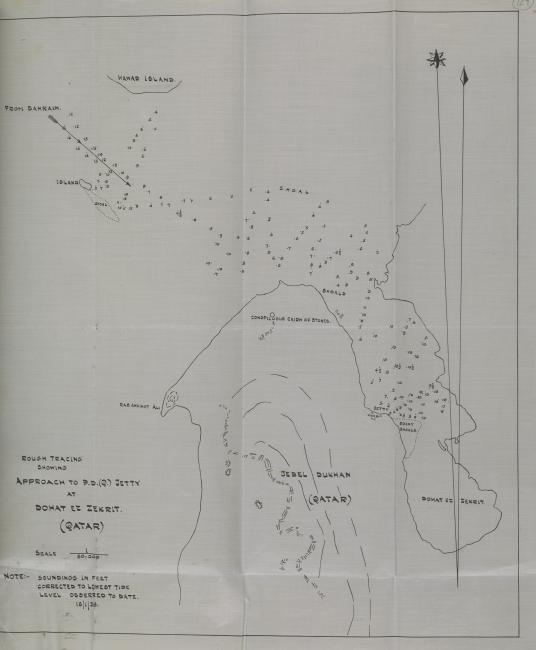
A Long Negotiation
Exploration was carried out in early 1933 by two British geologists, E. W. Shaw and P. T. Cox. They found that the rock composition of the highest hill in Qatar bore similarities with the rock found at the oil field discovered in Bahrain. The first license for exploration, granted in 1932, had to be extended for eight months until 1933. Then, finally after long negotiations, A.P.O.C. agreed the deal in 1935 by signing a seventy-five year oil concession. The negotiations were helped in no small part by the British offer of military protection against the Saudi ruler, Ibn Sa’ud, in exchange for exclusive rights to bid for the oil concession.
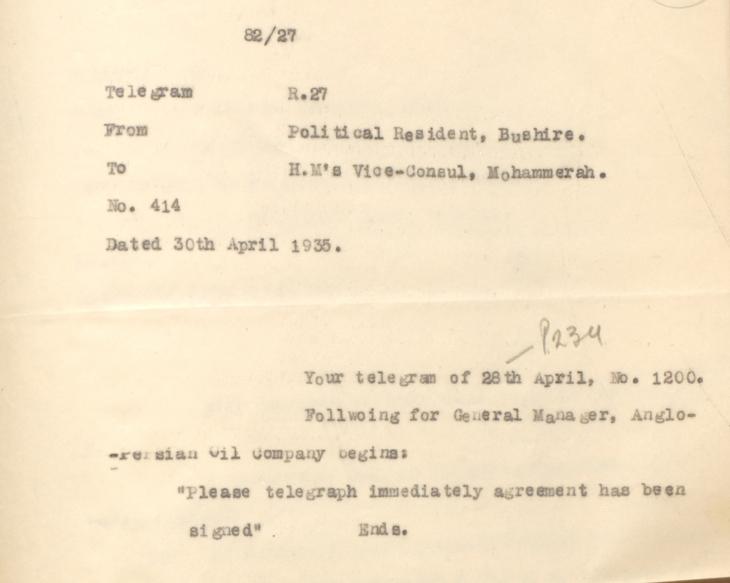
The Second World War
After initial exploration was carried out to find out the right spot for drilling, oil was discovered onshore in 1939 at Jebel Dukhan, on the Southewestern coast of Qatar. In 1941, oil was also found in a second well, ten miles south of the first, which opened in 1939.
The Second World War reset the priorities: in a letter dated 14 January 1940 that was sent to the Shaikh to congratulate him on the discovery of oil in Qatar, the Political Agent A mid-ranking political representative (equivalent to a Consul) from the diplomatic corps of the Government of India or one of its subordinate provincial governments, in charge of a Political Agency. , Hugh Weightman, wrote:
[I]t is most regrettable that the Company’s operations are bound to be delayed by the war which has been forced on us by Hitler and the German Government. We must hope that victory will be speedily achieved so that normal conditions may return to the whole world.
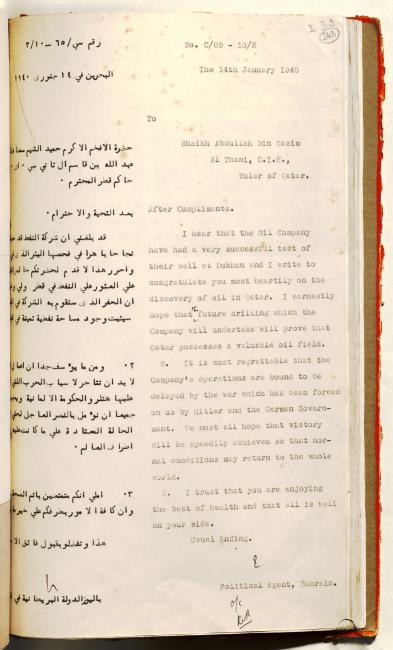
In December 1942, the camp at Dukhan was closed and the operations in Qatar were suspended. The British Government justified their decision with the Shaikh of Qatar on the basis of ‘the occurrence of force majeure’.
During the suspension of operations, which lasted until early 1947, payments of 300,000 rupees Indian silver coin also widely used in the Persian Gulf. a year in addition to several salaries were still provided to the Shaikh, but this wasn’t enough to help with the country’s financial difficulties. The economy was weak, the country was poor and depopulated. The political climate was also suffering as a result of a dispute with the Bahraini ruling family, the al-Khalifa, over sovereignty of the territory of Zubarah 18th-century town located 105 km from Doha. , in the North of the Peninsula. So great was the crisis that Shaikh ‘Abdullāh bin Jāsim Āl Thānī had to mortgage his home.
But the situation was about to change. Offshore exploration, drilling and extracting as well as the building of infrastructure only restarted in 1947. Between December 1947 and April 1948 a new geological survey was carried out in order to set up a new camp. Finally, in December 1949, oil exports began; an event that was to determine the beginning of a new era for Qatar.














